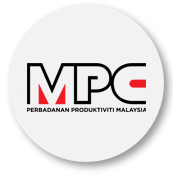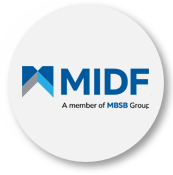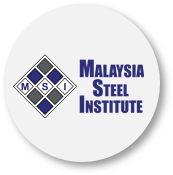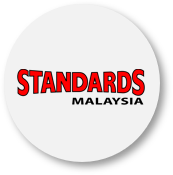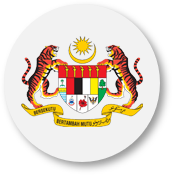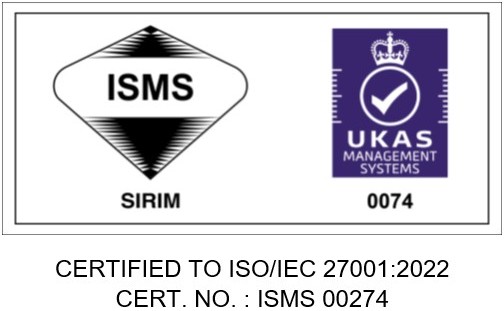
Putrajaya, 12 February - The National Small and Medium Enterprise Development Council (NSDC) convened its tenth meeting today and endorsed several key initiatives to strengthen competitiveness and resilience of small and medium enterprises (SMEs), with greater emphasis towards the development of SMEs in the services sector. Chaired by YAB Prime Minister, the Meeting was attended by the members of NSDC comprising various Ministries and Heads of Agencies involved in SME development, including Sabah and Sarawak. The Council formulates broad policies and strategies, and oversees coordination to enhance the effectiveness of Government programmes for SME development.
The Council was informed on the performance of SMEs during the period 2000-2009, and approved the development of a SME Masterplan (2011-2020) to elevate the role of SMEs in the New Economic Model. The Council endorsed the annual SME Integrated Plan of Action 2009/2010. The Council also approved the additional allocation of RM10 million to Pembangunan Sumber Manusia Berhad (PSMB) to coordinate training and human resource development needs of SMEs across all sectors of the economy.
The Council also took note on the current status of SME financing, the theme and content of SME Annual Report 2009/10, and the concept of the SME Innovation Showcase 2010 that will be held in June 2010.
GDP Growth of SMEs Outpaced the Overall Economy since 2004
The new set of data compiled by the Department of Statistics showed that GDP growth of SMEs outpaced that of the overall GDP growth since 2004. The data which is based on 2000 prices shows a clear break in the trend from the period 2000-03, whereby SME growth was almost similar to the overall economy. SMEs registered an average growth of 7.8% in the period 2005-08 (2000 - 2004: 4.9%). While the SME contribution to GDP remained relatively unchanged at 29% during the period 2000-04, SME contribution to GDP rose from 29.4% in 2005 to 31.4% in 2008.
The key contributory factor for the higher growth trajectory of SMEs was attributed to policy initiatives. The meeting noted that the setting up of the NSDC in 2004 and the consequent comprehensive approach taken through the SME Development Framework which coordinates the policies and programmes across more than 15 Ministries and 60 agencies had yielded positive results. The initiatives undertaken by the Council had improved the overall efficiency in policy implementation.
Other supportive policies that attributed to higher growth of SMEs were:
• Improved Government delivery by PEMUDAH;
• Visit Malaysia Year 2007 and increment in emoluments of Government servants benefiting consumption-related services sub-sectors;
• RMKe9 infrastructure projects supported growth of small contractors; and
• Renewed policy focus on the agriculture sector, particularly food crops benefited the farming community.
The analysis showed that SMEs play a critical role in stabilising the Malaysian economy during economic shocks and in some sectors, SMEs remain resilient and agile during the economic downturn.
The services sector was the main contributor to the growth of SMEs in the period 2005-08. In 2008, the services sector formed about 60% share of the SME GDP, followed by the manufacturing sector (30%), agriculture (7%) as well as construction and mining (3%). The key growth drivers in the services sector were distributive trade; real estate and business services; as well as finance and insurance, while resource-based products such as petroleum, chemicals, rubber and food and beverages led growth in the manufacturing sector. Palm oil and food crops were the growth drivers in the agriculture sector, and civil engineering activities supported growth in the construction sector.
GDP growth of SMEs peaked at 10.3% in 2007 before slowing down thereafter, weighed down by the impact from the global economic and financial crisis. SMEs experienced the effects since the last quarter of 2008 and further intensified in 2009. Thus far, SME Corp. Malaysia has undertaken three surveys on the impact of the global crisis on SMEs and the last survey in July/August 2009 showed signs of bottoming out of the effects on SMEs. The stimulus packages have begun to show positive results as 53% of the funds from the RM15.6 billion applicable for SMEs have been disbursed benefiting over 56,000 SMEs as at end-December 2009. During the period, about 76% of the funds have been approved.
The Council endorsed the Secretariat’s proposal to formulate a SME Masterplan (2011 – 2020) to elevate the role of SME as the key source of endogenous growth in the New Economic Model. The Masterplan would propose bold measures for SMEs to make a quantum leap in GDP growth and for Malaysia to produce domestic, regional and global champions that can spearhead the growth in the economy.
An Outcome Based Approach in Assessing SME Development
The Council took note that the assessment of SME development initiatives is moving towards an outcome-based approach. In this context, the outcome is measured on three fronts:
• Macro level – assessment based on macroeconomic indicators such as GDP, employment and exports;
• Programme level – critical assessment on effectiveness of Government programmes through the Impact Analysis Framework on SME Development Programmes (IAFSP); and
• Firm level – assessment on competiveness of SMEs at firm level using a diagnostic tool, the SME Competitive Rating for Enhancement (SCORE).
The Council endorsed the establishment of a special unit responsible for the development of SMEs at the relevant Ministries and Agencies using existing resources to enhance the effectiveness in coordinating and monitoring of SME development initiatives. The Council also encouraged all Ministries and Agencies to adopt SCORE to monitor SMEs under their programmes.
SME Integrated Plan of Action 2009/2010
The Council took note of the achievements of the 2009 key programmes and endorsed the planned programmes for 2010 as reported in the annual SME Integrated Plan of Action 2009/2010.
In 2009, a total of 157 key programmes were implemented amounting to RM2.68 billion which benefitted 732,000 SMEs. Of the total programmes implemented, 18 programmes were towards strengthening the enabling infrastructure (RM0.12 billion) and 120 programmes were for capacity and capability building (RM0.68 billion). The remaining 19 programmes were for enhancing access to financing (RM1.88 billion).
For 2010, a total of 354 programmes are being implemented with a financial commitment of RM6.02 billion, comprising all SME programmes and funds. About 55% or RM3.3 billion is allocated for the development of SMEs in the services sector. This is in line with the Government’s aspiration to develop Malaysia as a high-income economy with the services sector as the key driver of growth.
Continued Access to Financing for SMEs
As domestic economic conditions show further improvement and with available ample liquidity, financial institutions continued to support the financing needs of SMEs in 2009. The total financing outstanding of the financial institutions stood at RM135.5 billion to account for 40% of total business financing, benefiting 635,841 SME accounts as at end-2009. In this regard, viable businesses from all sectors continue to have access to financing that will support domestic economic activity.
Banking institutions remained the main source of financing for SMEs as they contributed 88% of total SME financing outstanding of banking institutions and development financial institutions. The approval rate of SME financing remained relatively high at 82% in 2009. Government funds and schemes, factoring and leasing as well as venture capital companies complement the financial institutions in financing the SMEs.
Financial institutions also continued to support the micro financing needs of micro enterprises under the Pembiayaan Mikro scheme. The annual growth for total micro financing outstanding was 29.1%, which amounted to RM617 million at end-2009, benefiting 57,403 clients. The number of microfinance access points has more than doubled over the last 3 years to 1,868 access points (end-2006: 913 access points).
Financial institutions also have been proactive in restructuring and rescheduling financing facilities of financially distressed SMEs. In 2008, there was a two-fold increase in the number of cases restructured and rescheduled to about 3,235 cases. In 2009, the number of cases restructured and rescheduled continued to increase to 4,646 cases. A comprehensive financial advisory and redress services infrastructure is also in place to assist SMEs seeking advisory or redress assistance. For example, in 2009, BNM has assisted 253,801 individuals and businesses, an increase of 90% as compared to 133,439 individuals and businesses in 2008. During 2009, 531 SMEs have received specific advisory services on access to financing from BNM. 92% of these cases were effectively resolved during the period.
Developing Capacity and Capability of SMEs in the New Economic Model
Pembangunan Sumber Manusia Berhad (PSMB) will continue to coordinate training and human resource development programmes for SMEs across all sectors, including its Training Incentive Scheme for small employers registered with PSMB, which will encourage employers to systematically enhance their knowledge and skills of the workers.
Last Updated 2015-05-14 12:00:26 by admin2







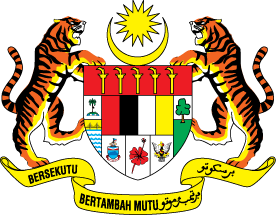





 Home
Home










